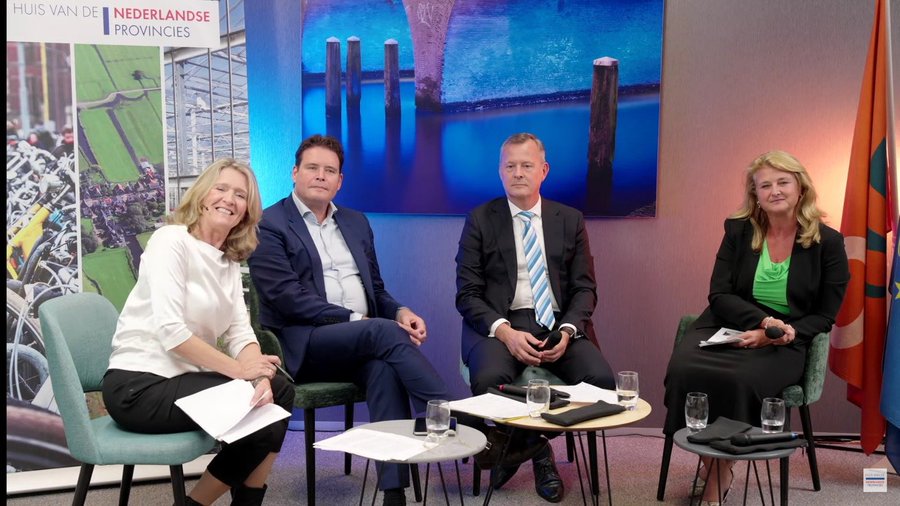CHAINLAW: Responsive Law for Global Value Chains
Doctrine, documents, data – this is the trinity which Anna Beckers will analyse in her ERC-funded project CHAINLAW. The project will lay the foundation for developing a regulatory framework in response to the socio-economic institutions that make up global value chains. Her holistic approach will consider the role of trading practices, contract terms, and the involved networks of auditors and certifiers, as well as transnational legal structures and interventions from states.
From the Rana Plaza factory building in Bangladesh collapsing and killing more than a thousand people to the climate crisis, from shortages of medical supplies and toilet paper during the pandemic to a container ship run aground in the Suez Canal becoming a nigh-literal spanner in the works of the global economy. And all the way back to Bangladesh, where a humanitarian crisis broke out when Western fashion brands cancelled their orders en masse during the COVID pandemic. Everything is connected by global supply chains.
“For a long time, we have seen neither the disastrous consequences nor the fragilities of this system – because, well, things were just running along nicely.” Yet, when in recent years disruptions were mounting, legal scholar Anna Beckers began to think more about the complexity of interconnected global value chains consisting of thousands of suppliers and sub-suppliers and how the law is, to some extent, based on too simplistic a view.
Beyond blaming the bad guys
Holding individual companies responsible for their supply chains is one approach currently much discussed by lawyers, but according to Beckers, a very limited one. “With this individualistic framework, you run into all kinds of problems: to what level of depth and detail should they be held responsible?” In other words, while the current system of completely externalising liability seems unjust, it is also problematic to solely focus on holding the Teslas and Apples legally responsible for the conditions in which cobalt is being mined in the Congo.
“Global value chains are pretty much boundlessly interconnected. In such a complex system, holding one company responsible is potentially overburdening the law. So I think we need to emancipate ourselves from this overly individualistic perspective.” Beckers points out that the network of actors from raw materials, transport, intermediate traders to marketing and state intervention exceeds the scope of corporate law.
What’s more, the complexity doesn’t stop at countless commercial parties across the globe doing business with each other. Beckers also includes state actors and civil society in her analysis. “If a state wants to increase its own economic development, it will try to ensure that its companies, state-owned or not, take higher positions in this chain. So we need to conceive of them in terms of institutions too.”
Self-regulating trade
While her research, for which she won a European Research Council (ERC) Starting Grant, will consider existing case law and regulatory initiatives in company and contract law, Beckers will also have two PhD candidates looking into new forms of law making, in particular the private regulations companies and civil society actors set themselves. “We will look at corporate policies and contracts, how they define and arrange the supply chain.”
In order to comply with new laws on supply-chain monitoring, companies set up technical systems to monitor supply chains – and these systems are also shaping them. “Larger companies choose from supplier databases based on price, environmental criteria, risk of disruption, etc. – but the system preselects based on a number of criteria, so a lot of the complexity is automated. The technical interface structures how and with what data suppliers can present themselves: it’s a kind of framing and my theory is that this acts as a regulatory mechanism in itself.”
The law had its role in the status quo
Beckers points out that it would be wrong to say that the law is playing catch-up with the market when considering the current regulation of global value chains. “On the contrary, the law was complicit, even fostering this development of unlimited supply-chain trade. Global trade evolved significantly since the 1990s – before that, you had a system with tariffs and trade barriers where those constructions – profit through outsourcing production to locations with lower labour costs – wouldn’t have paid off. Markets liberalised but social protection and environmental standards stayed the same. And both happened through the law.”
Beckers’ approach is based on this discrepancy. “There’s a global governance and regulation gap. That is to say that we don’t and won’t have a world government that makes and enforces laws to regulate global trade. Instead, we have a very complex bottom-up system with different legislation in different countries. Add to that the fact that transnational law isn’t only created by states; there’s also a self-regulating autonomous private system with contracting and dispute settlement.”
Towards fairness via realism
Naturally, there are winners and losers in this kind of system. Yet, as Beckers points out, it’s more complicated than an East-West or North-South dichotomy. “It’s complex and depends on the product, the sector and also the country. Some of the Chinese factories like Foxconn for example are in a very strong position… but yes, many countries in the Global South are not benefitting from the private risk allocation mechanisms.”
Despite criticism regarding geopolitical imbalances, regulatory capture, corporations budgeting relatively minor fines for major transgressions, and state-owned companies, Beckers keeps a scientific approach and wants to first study things as they are before debating how regulation should be. Her approach is responsive law – that is law conceptualised in such a way that it is responsive to the system it wants to regulate; as opposed to a top-down and/or ideological approach. Beckers’ research will lay the groundwork for that by understanding the system as is. “If we want to legislate in a good way, we first need to understand the system in all its complexity. Only then can we figure out how to best regulate supply chains to achieve valid objectives like emission reduction, human rights, consumer protection, fairness or resilience.”

Anna Beckers is Associate Professor of Private Law and Legal Methodology. She works in the Faculty of Law’s Department of Private Law with a research and teaching focus on international commercial and business law and corporate social responsibility. She also works as coordinator at the Graduate School of Law and teaches methods of doctrinal, comparative and normative legal research to PhD candidates and master’s students. Her main expertise is in sociological approaches to legal research, in particular social and legal theory and comparative legal research.
Also read
-
A team of researchers at the Law & Tech Lab is exploring an AI-assisted solution that makes legal assistance more accessible to everyone. Think of difficult contracts with legal language, explained in plain language or summarized for easy understanding. The exploration of this tool comes with a few...
-
On January 28th, Konrad Kollnig, assistant professor in the Law & Tech Lab of the Law Faculty, was awarded this years’ Stefano Rodotà Award. His thesis conducted a technological and legal study into mobile apps on how to improve data protection in practice.
-
27 September 2023, Brussels | “The green transition in mobility is going well, but it could be a lot better. Until 2040 and 2050, the infrastructure we need to build, will be impossible to achieve on an individual level.” With this conclusion, Turi Fiorito director of the European Federation of...


